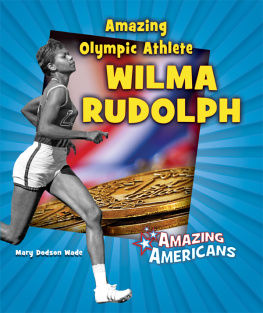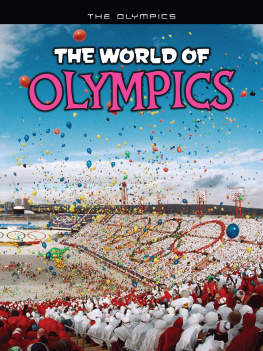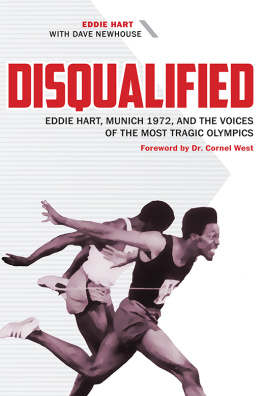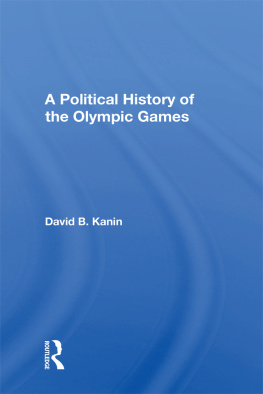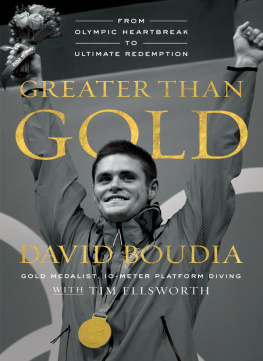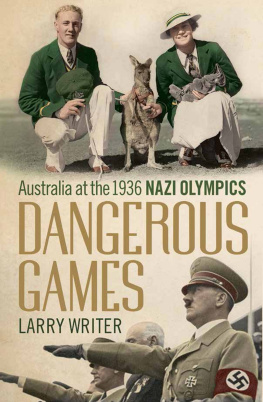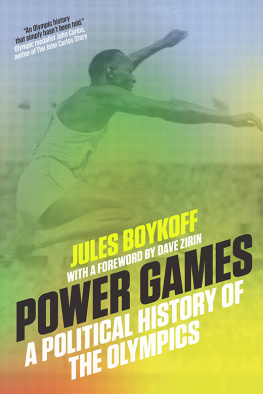
In memory of Mike Dempsey, an editor dying young.
Note
Every reasonable effort has been made to trace copyright holders of material reproduced in this book, but if any have been inadvertently overlooked the publishers would be glad to hear from them and will correct any omission in further editions. For legal purposes the list of acknowledgements on page 185 constitutes an extension of the copyright page.
Published by Bloomsbury Publishing Plc
50 Bedford Square
London WC1B 3DP
www.bloomsbury.com
First edition 2012
This electronic edition published in May 2012 by Bloomsbury Publishing Plc
Copyright Richard Witt 2012
ISBN (print): 978 1 4081 6403 7
ISBN (epub): 978 1 4081 7957 4
ISBN (e-pdf): 978 1 4081 7956 7
All rights reserved. No part of this publication may be reproduced in any form or by any means graphic, electronic or mechanical, including photocopying, recording, taping or information storage and retrieval systems without the prior permission in writing of the publishers.
Richard Witt has asserted his right under the Copyright, Design and Patents Act, 1988, to be identified as the author of this work.
A CIP catalogue record for this book is available from the British Library.
Acknowledgements
Opening quote credit www.TheHivesBroadcastingService.com
Front cover quote from Jesse Owens.
Cover and text designed by James Watson
Typeset by seagulls.net
Yes they were smart but they are dead
And youre repeating all that they said
You know it dont make you clever like you thought it would
The Hives, Dead Quote Olympics

Contents
O like a book of sport thoult read me oer
William Shakespeare, Troilus and Cressida
Ni hao, bienvenue, yassou and welcome through the turnstiles to this book of quotations. For me the book is a link in memory to Athens in 20022004 when I presided over a gifted team of Olympic translators from Greek into English, and to Beijing in 2000. For you I hope (as a Romford man) the quotes will add a bit of relish to the Games of the XXX Olympiad, held in 2012 in London (where I am glad to have been born).
Are all the quotes in this book genuine? A good question. To illustrate, let us consider the curious incident of the Guskos Telegram, which occurred during the first modern Olympics, held in Athens in 1896. Robert Garrett (USA) had just won the shot-put, defeating the favourite, Miltiades Guskos (Greece). Third was Georgios Papasideris (Greece); after him there were three Europeans and another American. Scenting a scoop, an enterprising US journalist dispatched the following artistic telegram to New York, claiming it originated from Garrett: Guskos conquered Europe, but I conquered the world.
Later the journalists deceit was unmasked. Defiantly unrepentant, and indeed with professional pride, he used the classic defence that although Garrett didnt actually say this, it was what he would have said.
This takes us back to fifth-century Greece and the father of journalism, the historian Thucydides, who explained how he dealt with peoples speeches: Some I heard in person. Others I got from this source or that. It being difficult to keep everything in memory, I have consistently made the speakers say what, in my view, was expected from them on any one occasion, sticking as close as possible to their general drift. His statement of method raises huge questions about how one writes history.
In the pages that follow Ive tried to locate and transcribe words exactly as they were spoken, which isnt, sometimes, how they were first transmitted. The fact that a quotation is genuine doesnt necessarily mean it is original. For example: Colin Wellands sports drama film Chariots of Fire won four Academy Awards. Its title was lifted from William Blake, who himself had borrowed it from the Old Testament.
A subspecies that I should mention is flash quotes. These are, in theory, blazing words caught from the lips of winning athletes at the finishing line. But in fact they mostly though not always sag into tedious, well-worn generalities that a sport writer pressed for time could and occasionally does conjure up with ease. Run-of-the-mill journalists and their readers are happiest with stereotyped reactions; and few pole-vaulters are Ernest Hemingway.
Going for gold
To stop the Duke, go for gold!
The phrase go for gold is now so much an Olympic clich that its very origin and the various shifts in meaning it has gone through are somewhat forgotten. The Duke who was to be stopped was Wellington (17691852) and this, in 1830, was a slogan used by British activists agitating for constitutional reform; they hoped to start a financial panic by causing a run on the banks gold reserves. To go for meant here to attack. By contrast, in Australian English to go for gold was, perhaps as early as the 1850s, to aim for something higher than your usual (low) standards. The common denominator is the idea of a target. When American GIs joined them after the Japanese attack on Pearl Harbour in 1941, local gamblers in Hawaii had for some time been using the pidgin phrase go for broke to mean bet all ones money on the dice. (In pidgin, brok da mout breaks the mouth is food that is delicious beyond words.) The GIs took go for broke to their hearts, giving the US infantry a combat motto. Going for a supremely important and risky objective became a familiar expression, as in the 1980s management slogan go for it.
What with all the medals involved, go for gold was destined to become an Olympic catchphrase. This happened once the 1980 USA Olympic womens team adopted it as their motto. Bob Hope, in his Confessions of a [Golf] Hooker (1985), quipped: America is a country where the Olympics and the divorce lawyers both have the same slogan Go for the Gold.
Duckspeak
The sag and tedium I mentioned earlier are, alas, part and parcel of organising the Games. Who can place the least reliance on the so-called Olympic religions articles of faith? asked Collectif Anti-Jeux Olympiques (CAJO), the French anti-Olympics caucus, written as they are in duckspeak? If you want to anaesthetise your response to the meanings of words and the nuances of the English language, then apply for a job at the Rio Games.
Like a whale dragging its harpoons, the Olympics advance with their accumulated institutional baggage of technical terms and hallowed clichs. Terms like signage proliferate. A little of the baggage is French, since the Olympic Movement is a last bastion of Francophonie. Thus chef de mission, the head of a delegation, must never be said in English, though it beats me why not.
Yes, certain terms and phrases are Standard, and God shield you from the International Olympic Committee (IOC) if you try and alter them. One is Olympic Games: neither word of the two must be omitted, despite the fact that even gold medallists happily refer to the Olympics and that, contradictorily, the useful phrase at Games-time is approved. A responsible person, in OlympicSpeak, is not what she or he would be in the real world, an individual with a sense of responsibility, but simply the official or minion carrying out a specific function. Transportation a word that once used to mean sending convicts to Australia now means, thanks to lobbying by the IOC and others, transport. In the cloud-cuckoo-land of facilitating the implementation of the Games, problems are unthinkable, or at least unthought of; there are only issues, which are all, one way or another, resolved.


